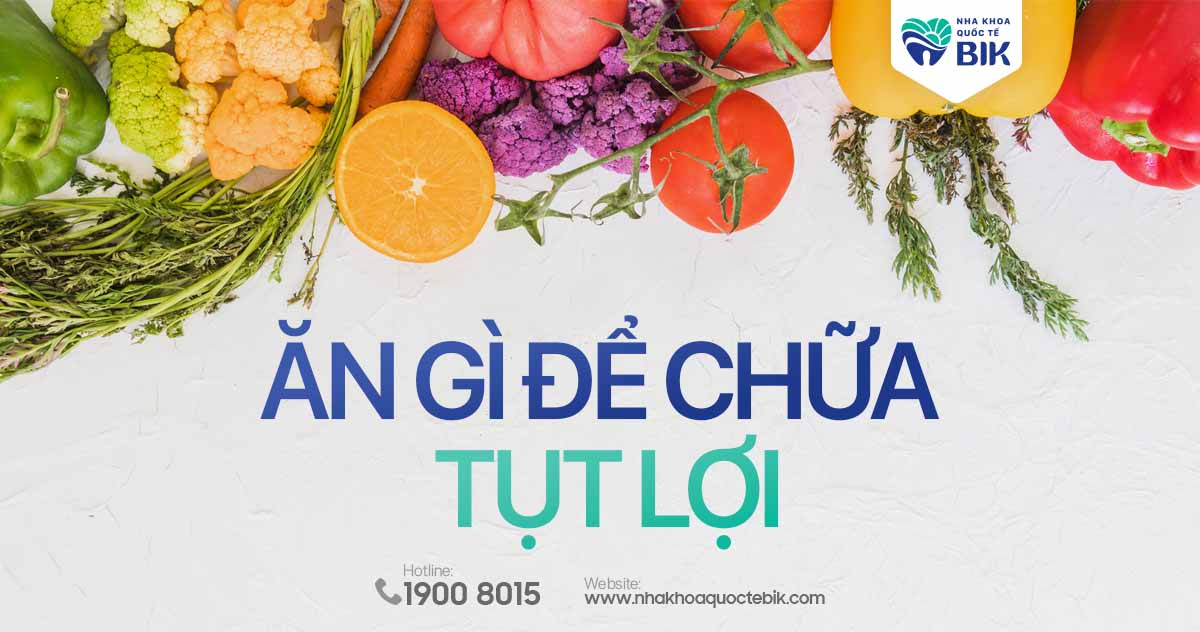
Diet is also an important factor affecting each person’s oral health, especially when experiencing gum recession, a scientific diet is even more important. In fact, treating gum recession at the dentist is not enough to stop gum recession, but patients also need to cooperate with their dentists to practice proper oral hygiene as well as have a reasonable diet at home. So let’s find out with BIK International Dentistry what to eat to treat gum recession and what to avoid to maximize the effectiveness of the treatment process!
1. What are the symptoms of gum recession?
Gingival recession is a condition in which the gums are pulled back towards the tooth root, causing the tooth root to be exposed quite a bit. Therefore, the teeth will become sensitive and easily sore during chewing or daily oral hygiene.
Early gum recession often does not cause discomfort to the patient, so it is often ignored and not treated promptly. Symptoms of gum recession can be listed as follows:
– Gums are dark red and swollen, often bleeding when cleaning teeth.
– The gums appear gaps, not hugging the tooth roots.
– Teeth become more sensitive when exposed to spicy, sour, hot or cold foods.
– The distance between teeth begins to gradually shift apart because the gums are no longer strong enough to hold the teeth firmly,
– Bad breath.
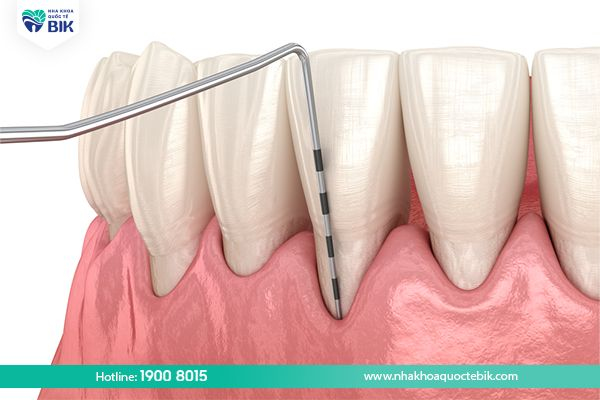
2. Effective ways to treat receding gums at home
To reduce the discomfort of receding gums, you can apply the following measures:
2.1. Use honey
Honey has long been a natural ingredient that effectively supports the treatment of diseases related to inflammation and infection. Using honey to treat receding gums is also very simple. You just need to use a cotton swab soaked in honey to dab on the damaged gums for 5 minutes and then rinse your mouth with clean water. Continue doing this for 1 week and you will see positive changes in your gums.
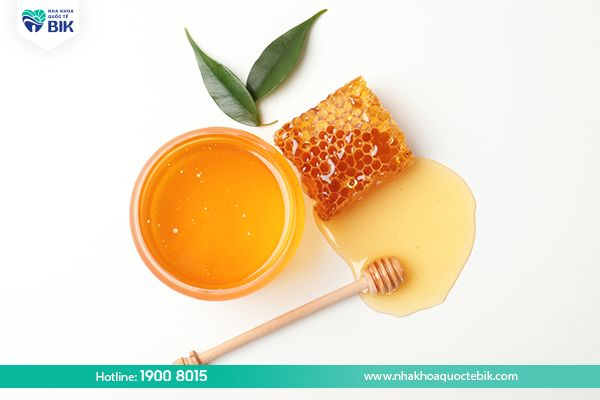
2.2. Using green tea leaves
Green tea leaves contain catechin which helps strengthen the bond between teeth and gums, in addition to antioxidants, so green tea is commonly used to effectively support the treatment of receding gums. You just need to boil green tea leaves with clean water and then filter the water. Use cooled green tea water to rinse your mouth every morning or use it as a daily drink.

2.3. Using aloe vera
Not only famous for its skin beautifying properties, aloe vera can also effectively improve swollen gums and receding gums. You just need to take a sufficient amount of aloe vera and apply it to the damaged gums, keep it for about 3-5 minutes and then rinse your mouth with water. Or alternatively, apply aloe vera directly to the toothbrush to brush your teeth every day.
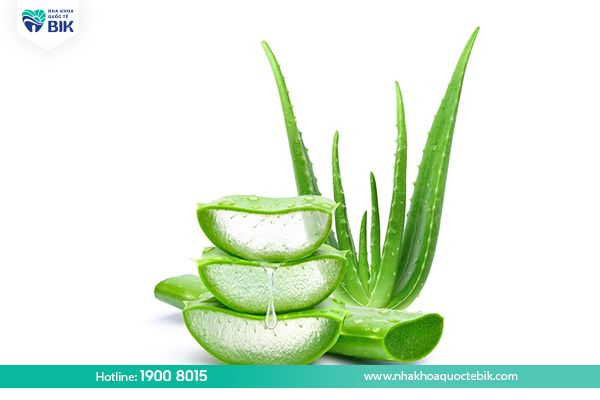
2.4. Using topical medications
Using topical medications containing fluoride is one of the most popular ways to reduce pain when your gums recede. You can easily find these medications, but they are only a temporary solution and cannot treat the root cause of receding gums.
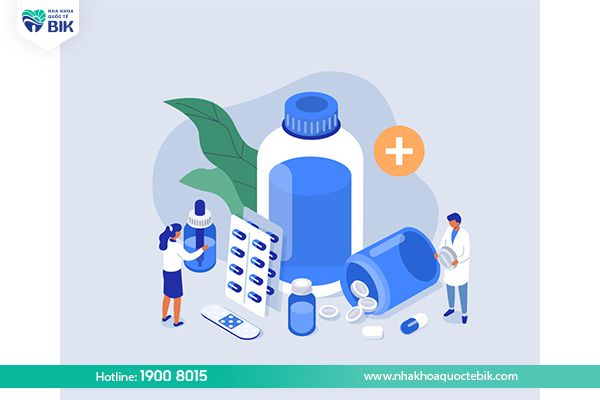
3. What to eat to treat receding gums?
Diet is also a factor that directly affects the health of the gums, so you need to pay attention to building a reasonable diet to treat receding gums:
3.1. Foods rich in fiber
Supplementing enough fiber while having receding gums will help clean the oral cavity and increase the ability to secrete saliva, protecting teeth and gums from bacterial attacks. From there, not only effectively overcome receding gums, but the body also has enough resistance to repel other oral diseases. Fiber is often found in green vegetables, carrots, cauliflower, beans, etc.
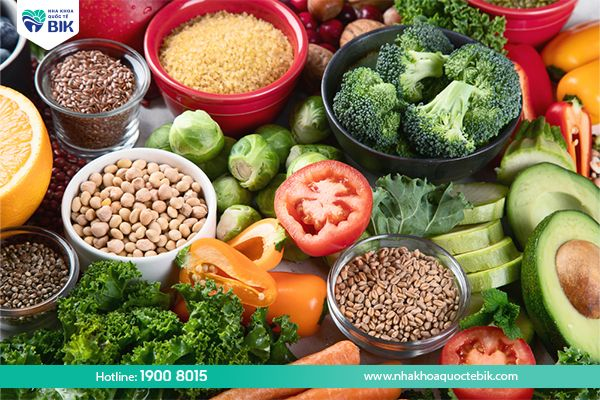
3.2. Foods containing Lactic Acid
Foods containing a lot of Lactic Acid such as yogurt, bread, etc. are very good for patients with receding gums. Lactic Acid not only helps with digestion but also increases the activity of the immune system, inhibiting the growth of bacteria that cause oral diseases. Therefore, foods containing Lactic Acid can effectively support the treatment of receding gums.

3.3. Fruits containing vitamin C
People with receding gums should also eat foods containing vitamin C such as guava, orange, lemon, tangerine, etc. to increase resistance and help improve oral health. This substance prevents the growth of harmful bacteria and effectively heals gum damage.
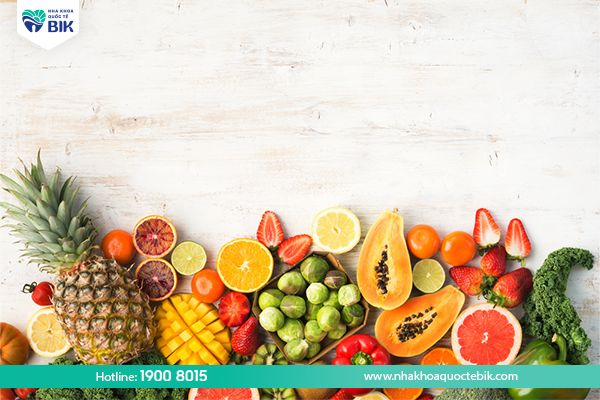
3.4. Drink honey and lemon
Honey contains many antibacterial factors and lemon contains a lot of vitamin C which increases the body’s resistance, so when combining these two ingredients, it will help support the treatment of receding gums effectively. Lemon and honey when combined will create a drink that improves inflammation and swelling of the gums, while eliminating unpleasant body odors and keeping the mouth clean.
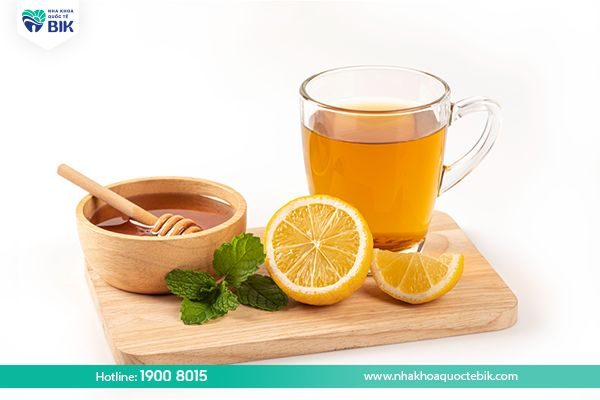
3.5. Foods rich in Omega 3
Foods rich in Omega 3 are mainly found in fish such as sardines, salmon, tuna, herring, etc., which have the effect of optimally protecting the gums. In addition, Omega 3 helps to effectively reduce receding gums, while strengthening the immune system, promoting the healing process caused by receding gums.
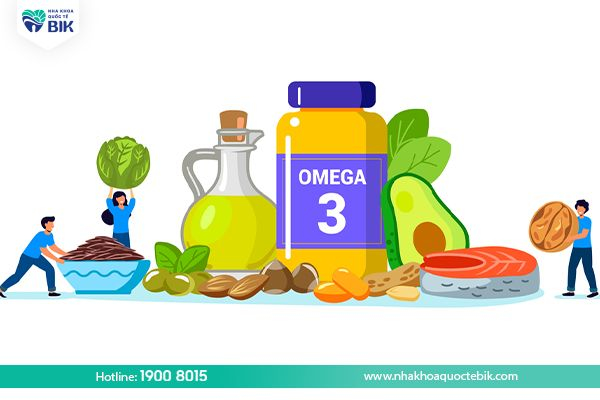
4. Foods to avoid when having receding gums
In addition to paying attention to supplementing the necessary foods to support the treatment of receding gums, patients also need to pay attention to abstaining from certain foods to get the best treatment effect:
4.1. Foods that are too cold or too hot
When having receding gums, the gums become swollen and painful when chewing and are very prone to bleeding when exposed to external influences. Therefore, eating foods that are too hot or too cold can make the pain worse and the damage more severe. Therefore, for the treatment to go smoothly, it is best to limit foods that are too cold or too hot such as: Chili, pepper, ice, ice cream, … until the disease is completely cured.
4.2. Hard, chewy foods
When eating hard, chewy foods, the patient needs a lot of jaw force to grind them before digesting them. This directly affects the damaged gums. In addition, chewy foods are easily stuck in the teeth, if not cleaned thoroughly, they will form tartar, making the inflammation even more difficult to treat.
4.3. Foods that dry the mouth
A dry mouth and lack of saliva are ideal environments for bacteria to grow and attack, causing receding gums to worsen. Therefore, patients need to keep the mouth moist to remove food plaque left on the tooth surface, preventing the growth of bacteria.
4.4. Foods high in sugar
When using sweet foods that contain too much sugar, sugar particles will get stuck in the teeth, creating conditions for bacteria to grow and attack the sensitive gums. At this time, gum recession will worsen, the pain will occur more frequently and more intensely.
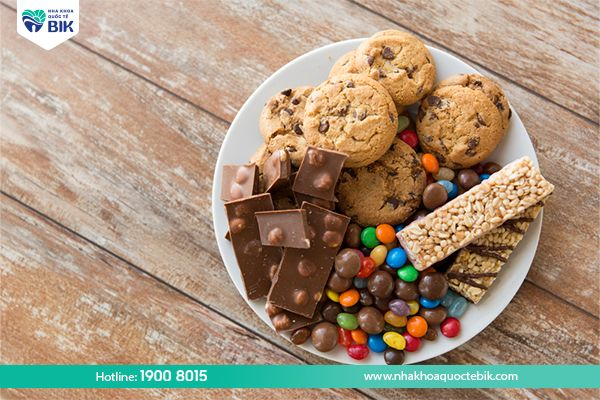
So with the information that BIK International Dental Clinic has compiled above, hopefully you know what to eat to treat gum recession most effectively. In addition, patients also need to avoid eating certain foods to ensure the treatment process is quick and most effective.


















